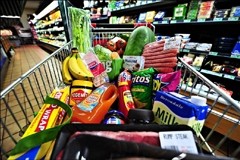Aussie suppliers watch profitability plunge by almost 30%

This startling finding means that companies operating in Australia are lagging significantly behind their international counterparts in their ability to maximise their opportunities in a tough market.
The report was undertaken by KPMG, and involved the analysis of detailed survey data from food and grocery suppliers operating in Australia over the four years from 2009 to 2012.
At the same time, supermarket retail turnover has recorded steady growth but Australian food and grocery suppliers are reporting falling turnover, with an upsurge in food and grocery imports.
Trade spend
According to Gary Dawson, the AFGC’s chief executive, suppliers have been significantly increasing the funding of price discounting by retailers via their trade spend. This 6.4% increase in trade spend has also been part-funded by reductions in marketing and R&D.
Meanwhile, a strong focus on cost containment has held labour costs and operating costs steady over the survey period, though suppliers are continuing to invest strongly in their businesses, with a more than 30% increase in capital expenditure over the four-year survey period.
“The overall picture is one of suppliers having to adjust rapidly to the shift in market conditions by investing in improvements to manufacturing systems to boost productivity and reduce labour and energy costs, and the funding of retail price promotions to try and maintain volume,” said Dawson.
“Looking forward, the ability of the Australian food and grocery manufacturing industry to increase its competitiveness and win export opportunities will require a continued focus on cost containment and capacity rationalisation, greater collaboration with retailers to drive growth and share the benefits of supply chain efficiencies, and a rebalancing of trade spend to boost brand building and innovation.”
Rudd seeks industry vote winner
Elsewhere, Australia’s new prime minister, Kevin Rudd, is said to be hatching an election policy to address difficulties in the manufacturing and food processing sectors.
According to the Australian Financial Review, Rudd has been working with a group of 25 backbenchers representing manufacturing seats to formulate a boost that will likely be seen as a big vote winner.
In his first address to parliament last week, Rudd said, "The time has come for us to adjust to the new challenges. New challenges in productivity; new challenges also in the diversification of our economy; new opportunities for what we do with processed foods and agriculture, in the services sector and also in manufacturing.
“I don’t want to be a prime minister of a country that didn’t make things anymore.”
The politicians have already met with Manufacturing Australia to discuss the impact of high gas prices on the industry.













